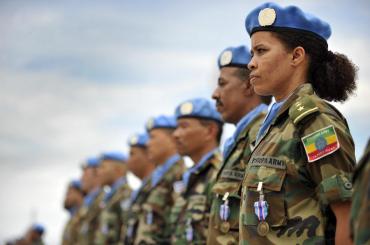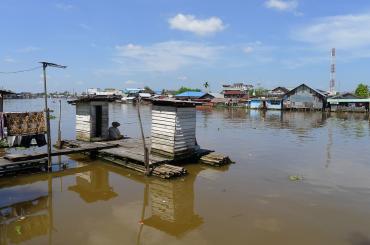
health
-

Effective health aid: Evidence from Gavi’s vaccine programme
Coordinated health aid for vaccination has increased coverage rates and saved the lives of children around the world.
-

Beyond security: UN peacekeeping's role in health and family planning
Evidence from Liberia highlights the role of peacebuilding interventions, through providing a ‘security umbrella’ that promotes local economic development and enables health services provision and access, in reducing fertility rates and improving hea...
-

Policymaking, trust, and the demand for public services
After the public disclosure of alleged forced sterilisations during a family planning campaign, municipalities in Peru with more victims exhibited a steep decline in public health services and lower levels of trust in public institutions
-

The role of finance in improving household health
Increased access to financial services after the expansion of banks in India improved household health outcomes
-

Sanitation investments, water pollution and health: Lessons from India
Sanitation investments in India led to large increases in water pollution, which offset the intended health benefits of increased latrine construction
-

International spillover effects of air pollution: Evidence from mortality and health data
Air pollution in China has significant negative effects on mortality and morbidity in South Korea, and accounting for this amplifies the overall benefits of environmental regulation
-

How human and ecosystem health are intertwined: Evidence from vulture population collapse in India
The collapse of vulture populations in India due to accidental poisoning prevented the scavenging of carcasses, worsening sanitation, and thus increasing human mortality
-

Encouraging demand for sanitation in Indonesia
Poverty, low social capital and low government administrative capacity hinder sanitation improvements, even when the health benefits are clear.
-

Direct and spillover effects of access to health insurance in India
Demand for insurance is high even at the actuarially fair price and receiving it alongside peers increases utilisation, yet health effects are elusive